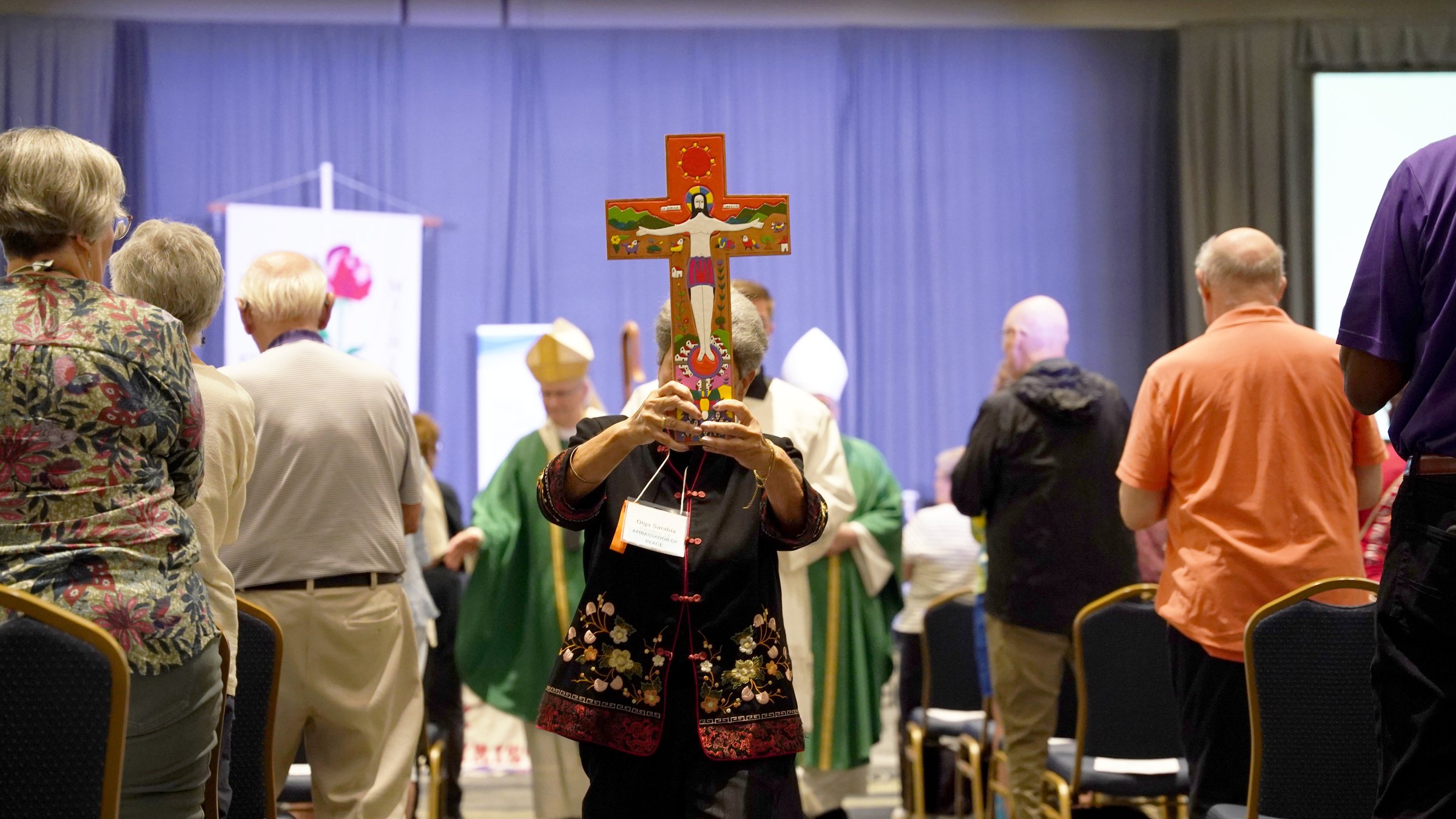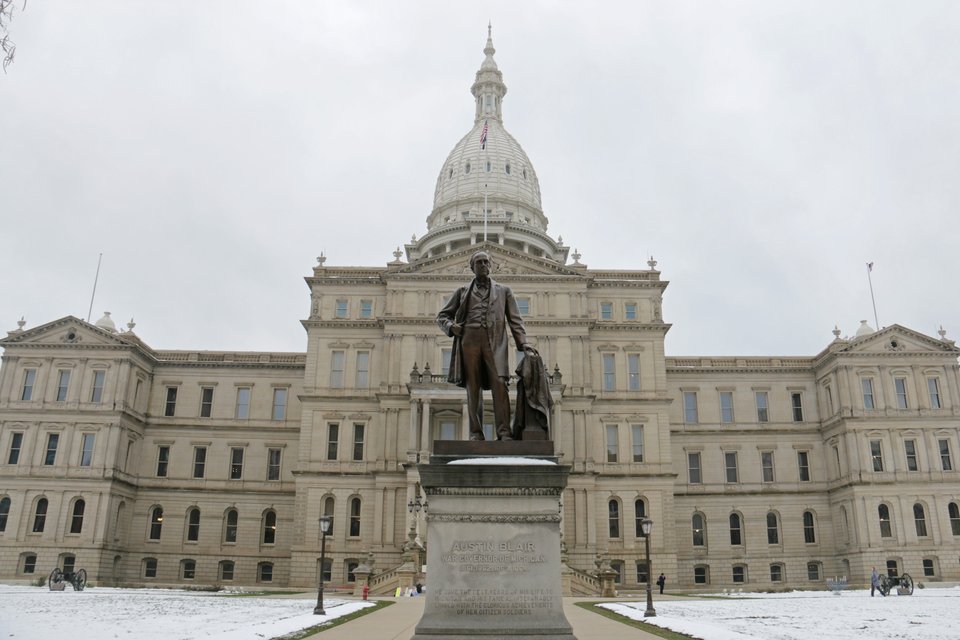Three-day conference July 25-27 addresses nonviolence in a broken world, concludes with Mass with Archbishop Weisenburger
DETROIT — The three-day semi-annual Pax Christi USA national conference July 25-27 at the Detroit Marriott inside the Renaissance Center began, unexpectedly, with an encouraging papal endorsement of the group’s commitment to nonviolence and peace sent by Pope Leo XIV.
Pax Christi, founded in 1945 in France, is an organization that rejects war, violence and racism, grounded in the Gospel and Catholic social teaching. The organization made its way to the United States in 1972, thanks to a group of lay and religious leaders, including the late Detroit Auxiliary Bishop Thomas J. Gumbleton.
Don't miss another story
Did you know you can get Detroit Catholic's latest daily or weekly articles delivered to your inbox? It's easy and free to sign up.
In his papal greeting, read aloud by Pax Christi USA’s communications director, Judy Coode, Pope Leo addressed the theme of this year's conference, “Reclaiming the Power of Nonviolence in a Broken World.”
“I extend cordial greetings and good wishes to those participating in the semi-annual national assembly of Pax Christi USA taking place in Detroit. In the midst of the many challenges facing our world at this time, including widespread armed conflict, division among peoples and the challenges of forced migrations, efforts to promote nonviolence are all the more necessary,” Pope Leo wrote. “We do well to remember that after the violence of the crucifixion, the risen Christ’s first words to the Apostles offered peace, one ‘that is unarmed and disarming, humble and persevering.’
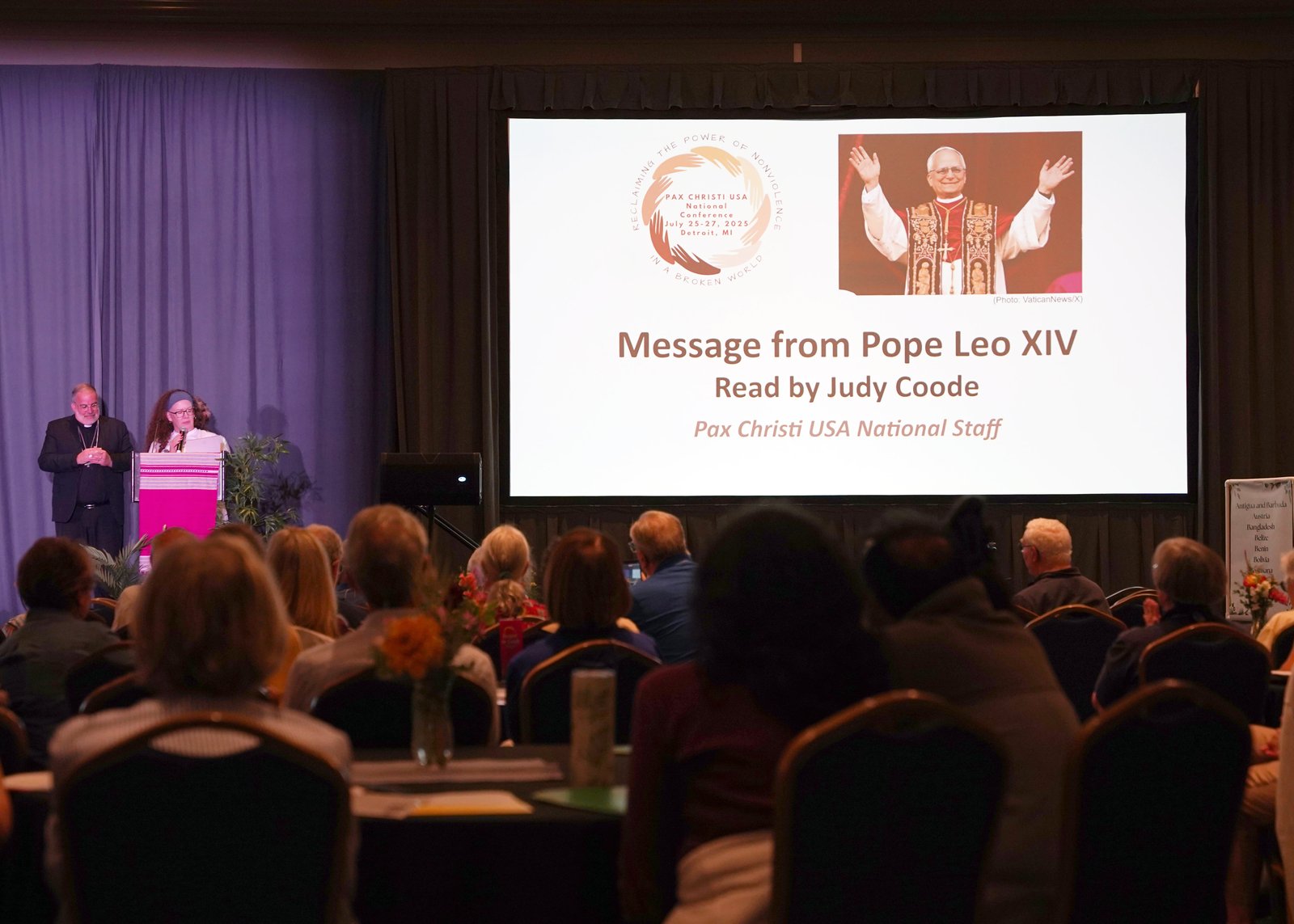
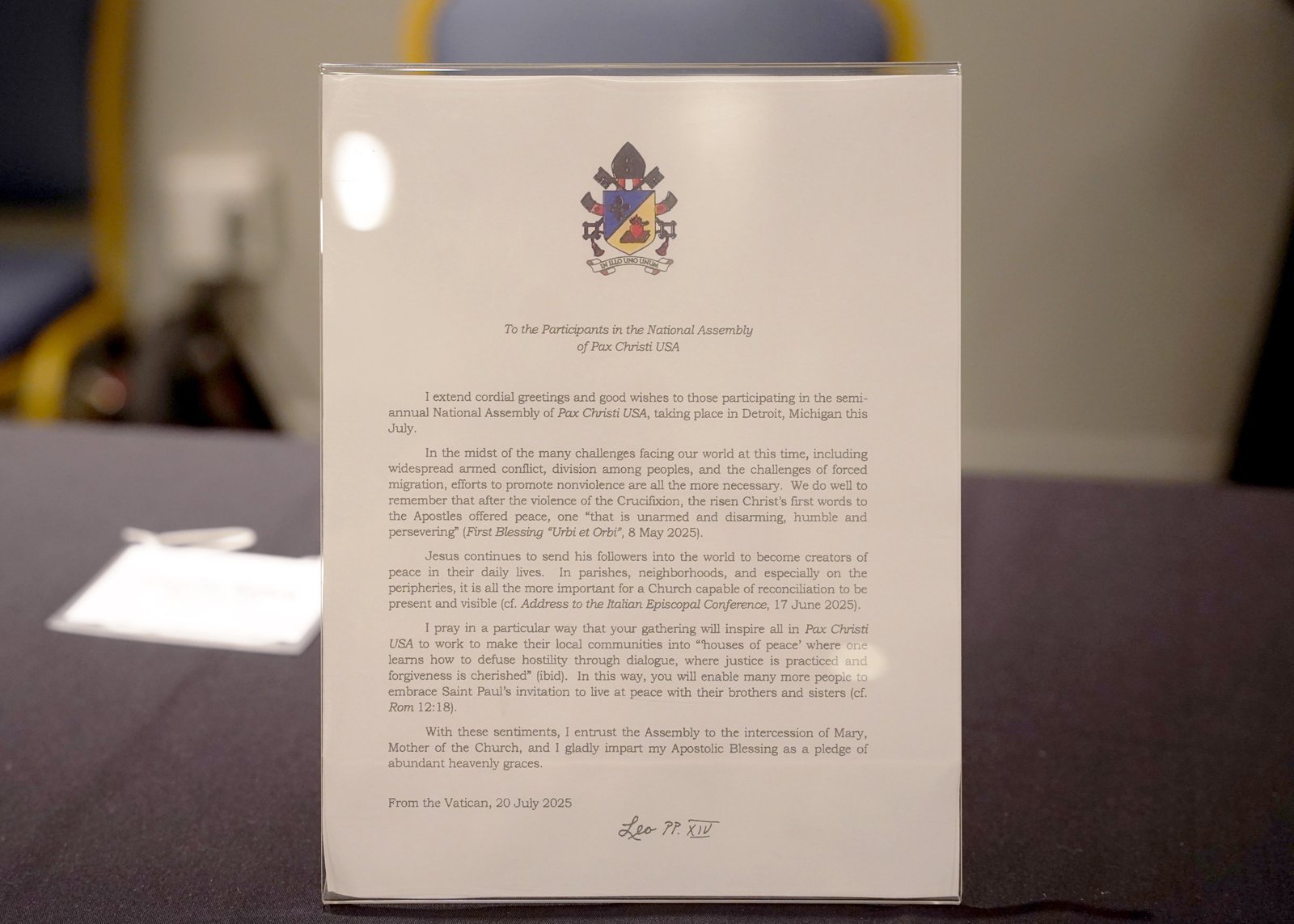
“Jesus continues to send His followers into the world to become creators of peace in their daily lives, in parishes, neighborhoods and especially on the peripheries,” Pope Leo continued. “It is all the more important for a church capable of reconciliation to be present and visible. I pray in a particular way that your gathering will inspire all in Pax Christi USA to work to make their local communities into houses of peace, where one learns how to diffuse hostility through dialogue, where justice is practiced, and forgiveness is treasured. In this way, you will enable many more people to embrace St. Paul’s invitation to live at peace with their brothers and sisters. With these sentiments, I entrust the assembly to the intercession of Mary, Mother of the Church, and I gladly impart my apostolic blessing as a pledge of abundant heavenly graces.”
Throughout the weekend, speakers highlighted Pope Francis’ commitment to nonviolence and peace during his papacy, and addressed the challenges of violence around the world, including in Gaza, Ukraine and Africa.
The keynote speakers included Maria Stephan, chief organizer of the Horizon Project; Jonathan Kuttab, executive director of Friends of Sabeel North America; and Maria Inés Romero, secretary general of Pax Christi International, who joined the assembly remotely.
In her opening keynote July 25, Stephan addressed the success of nonviolent resistance toward combatting a world broken by political, spiritual and personal conflict, pointing to a recent anecdote about Pope Leo’s first bishop appointee in the United States, Bishop Michael Pham of San Diego.
“Bishop Michael Pham, who fled Vietnam as a 13-year-old refugee in 1980, was recently part of an interreligious clergy delegation that entered a federal building in San Diego last month with two immigration hearings underway,” Stephan explained. “There were masked ICE agents in the hallway preparing to detain the immigrants after the hearing, then something remarkable happened. (Bishop) Pham said that when the agents saw the faith leaders, they scattered. It was like the parting of the Red Sea. That is exactly the kind of moral witness and faith in action that is needed now in the United States at a time when the very foundations of multiracial democracy anchored in respect for human dignity and the common good are under attack.”
Stephan said Pax Christi USA has elevated nonviolence as both a spiritual path and a political necessity, and stories like Bishop Pham’s highlight why working toward peace and justice rooted in the Gospel and Catholic social teaching is so essential in today’s world.
“Let’s be honest, our world is deeply broken; from Gaza to Ukraine, from Sudan to Haiti, from rural America to the streets of Los Angeles, we are witnessing unimaginable suffering, displacement and violence in the United States,” Stephan said.
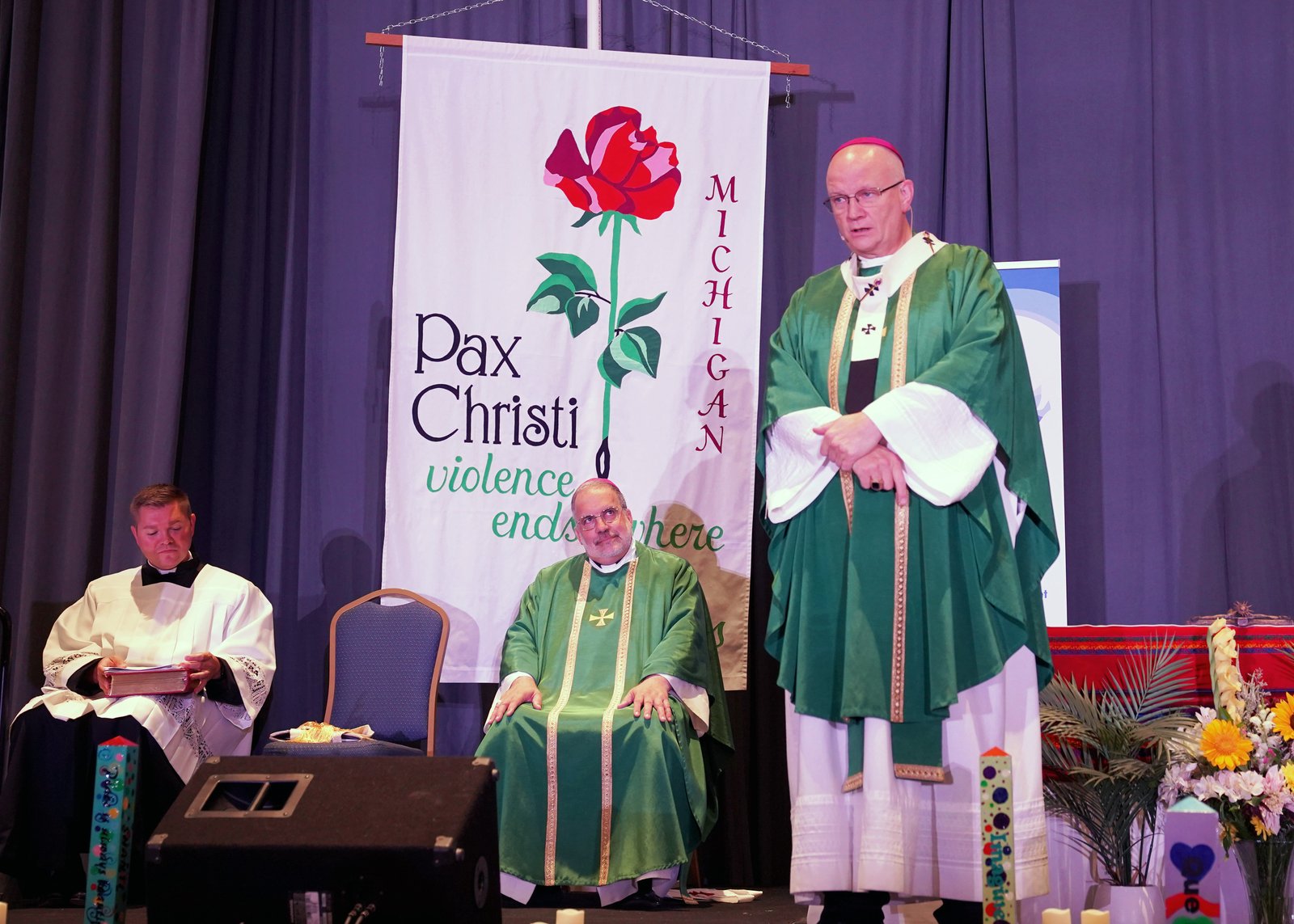
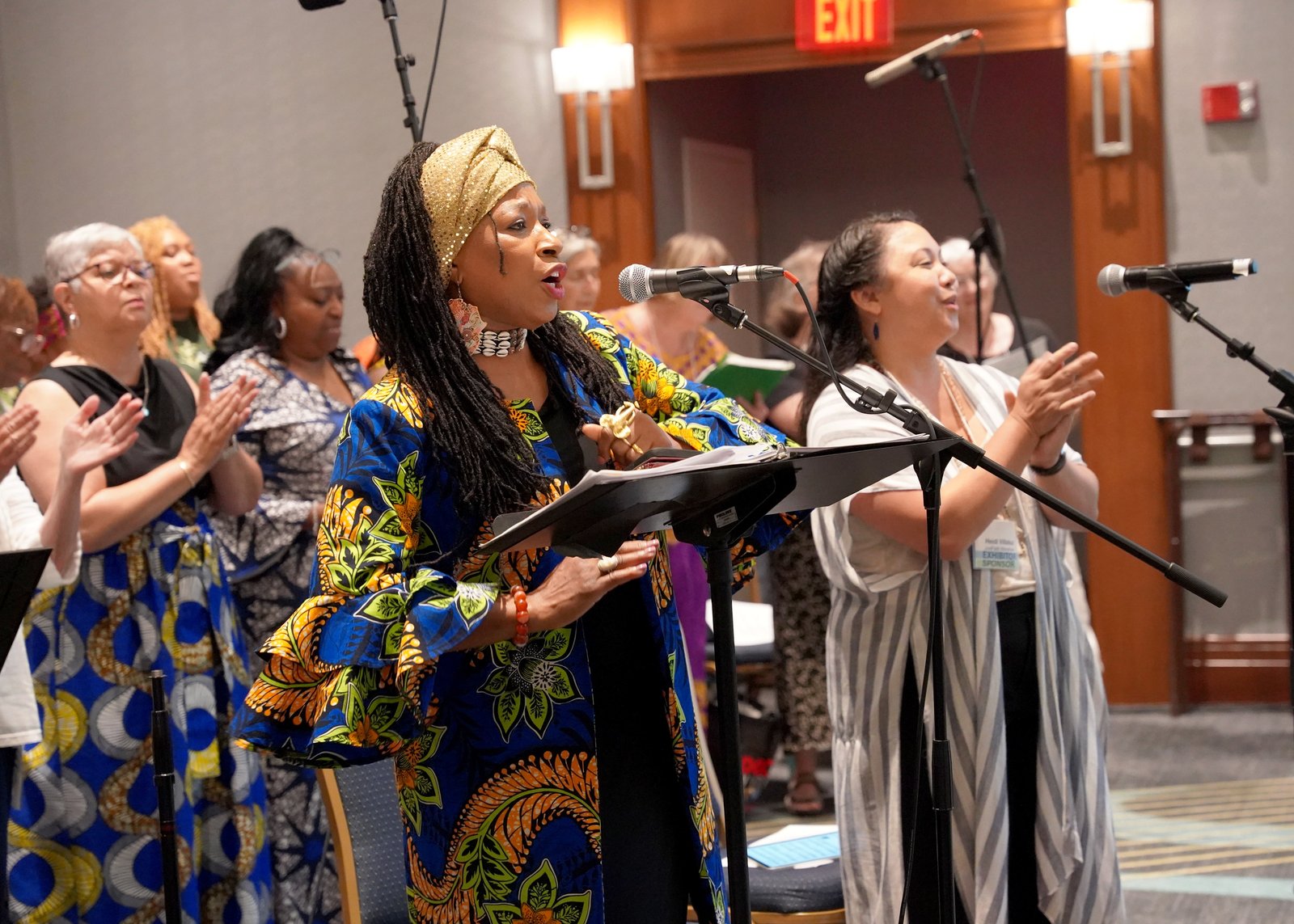
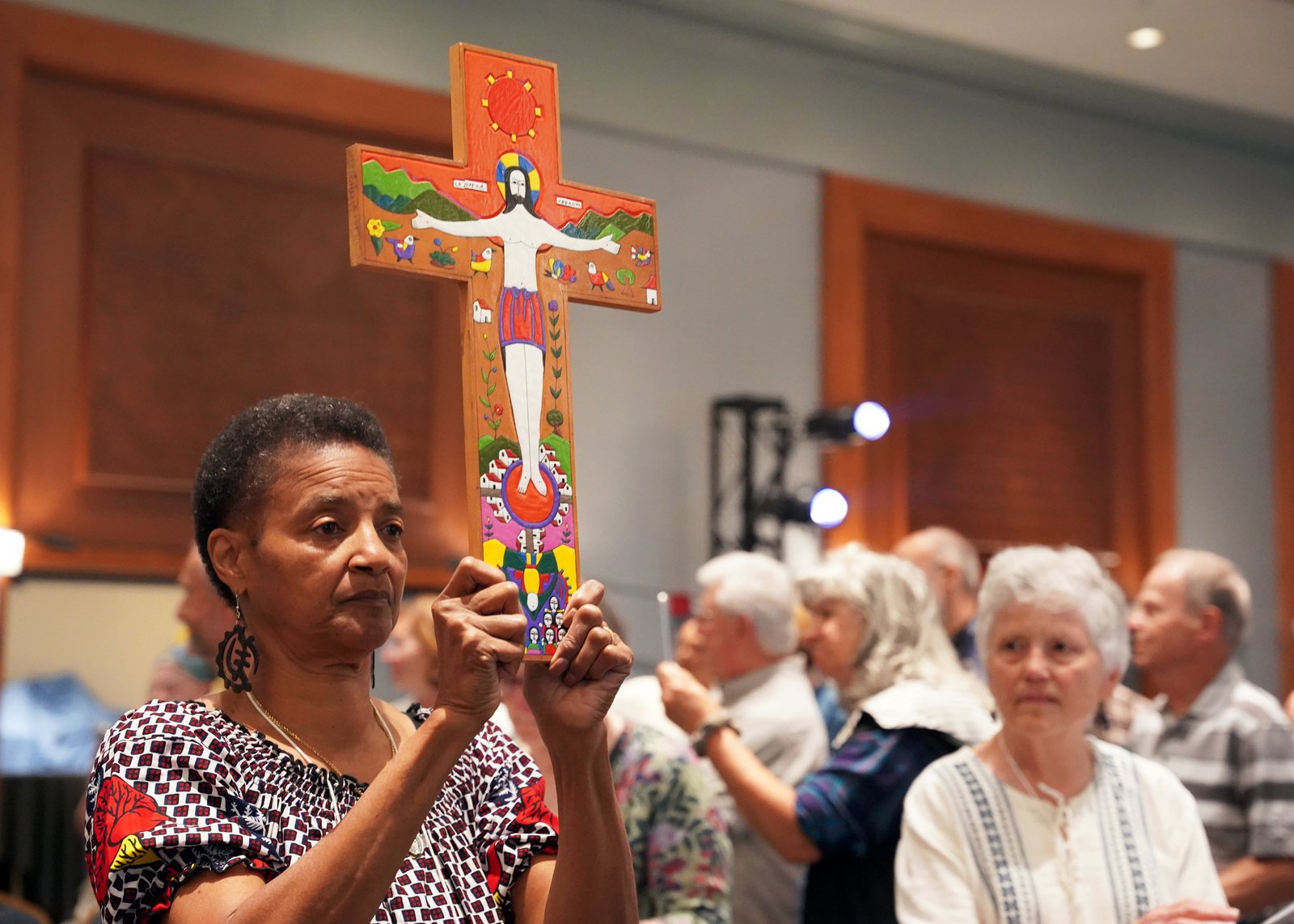
In the midst of the despair and suffering of the world, it can be easy to give way to overwhelm, despair and disengagement, Stephan said.
“I am here tonight to testify to this truth: nonviolence is not only a moral stance or a principled way of life — it is a strategic force,” Stephan said. “It is how ordinary people across history and geography have resisted tyranny, reclaimed their dignity and built a more just, inclusive and peaceful society. It's how together we can respond to the brokenness of our time.”
Stephan explained that nonviolence does not mean passivity, turning to a quote from the late Bishop Gumbleton.
“(Nonviolence) is active resistance to evil, rooted in love,” Stephan read, quoting the late bishop. “Jesus modeled revolutionary nonviolence. He confronted empire, exclusion and violence not with the sword but with solidarity, with truth-telling, and with active non-cooperation with injustice.”
At the end of the three-day assembly, the Pax Christi USA members gathered for Mass with Detroit Archbishop Edward J. Weisenburger. In his homily, the archbishop addressed the Gospel passage from St. Luke, in which Jesus introduces the Our Father to his followers.
“With this Gospel, I am always reminded of what I learned as a kid in middle school, and it was what we do daily, we do dully, unless we do it deeply,” Archbishop Weisenburger said. “Could there be a better example than the Our Father? (And yet), what deserves more deep thought than this prayer that comes to us from the mouth of Our Lord?”
Beginning with the word "our," Archbishop Weisenburger emphasizing that not a single word of the prayer is wasted, but intentionally placed in the prayer by Jesus.
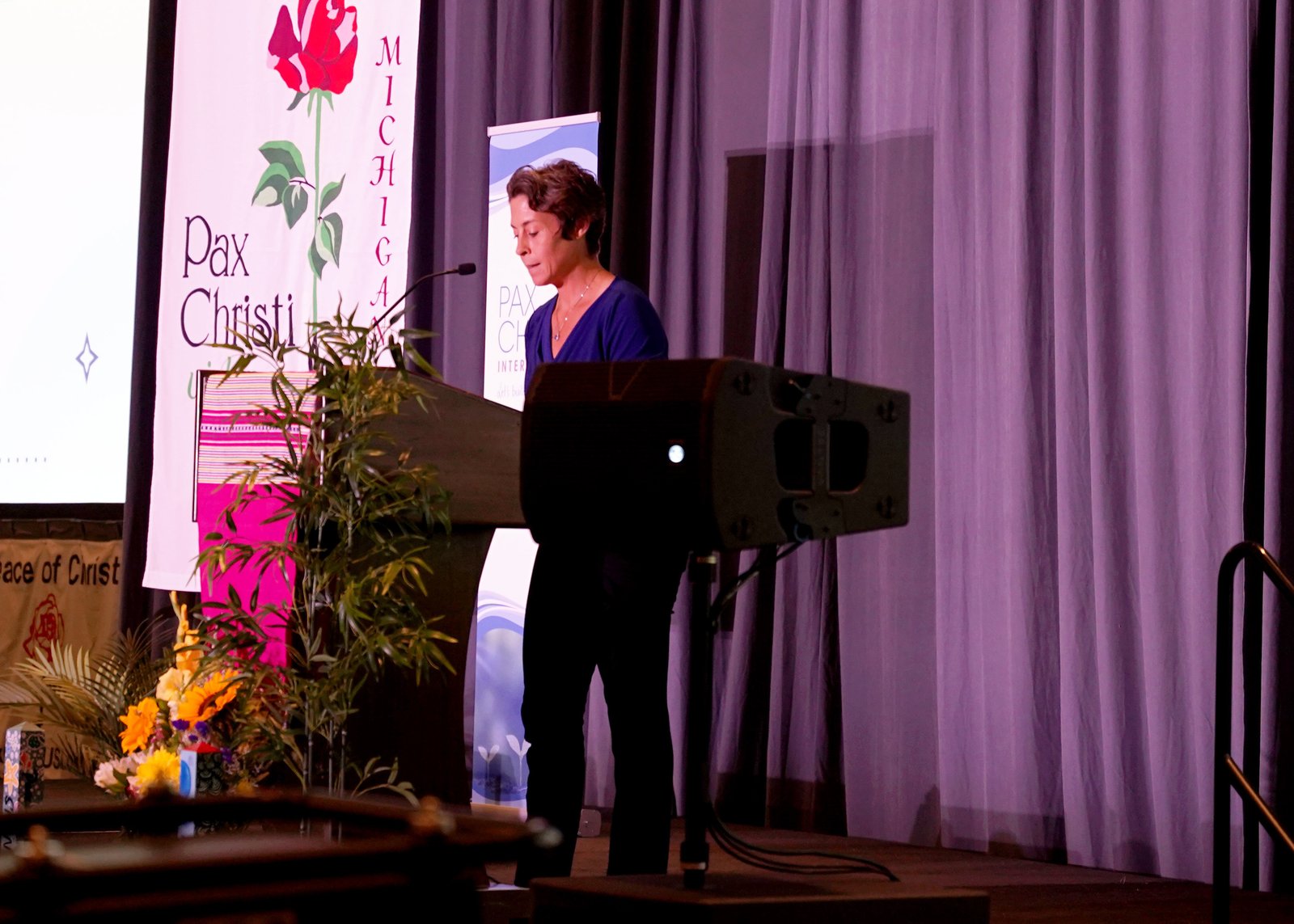
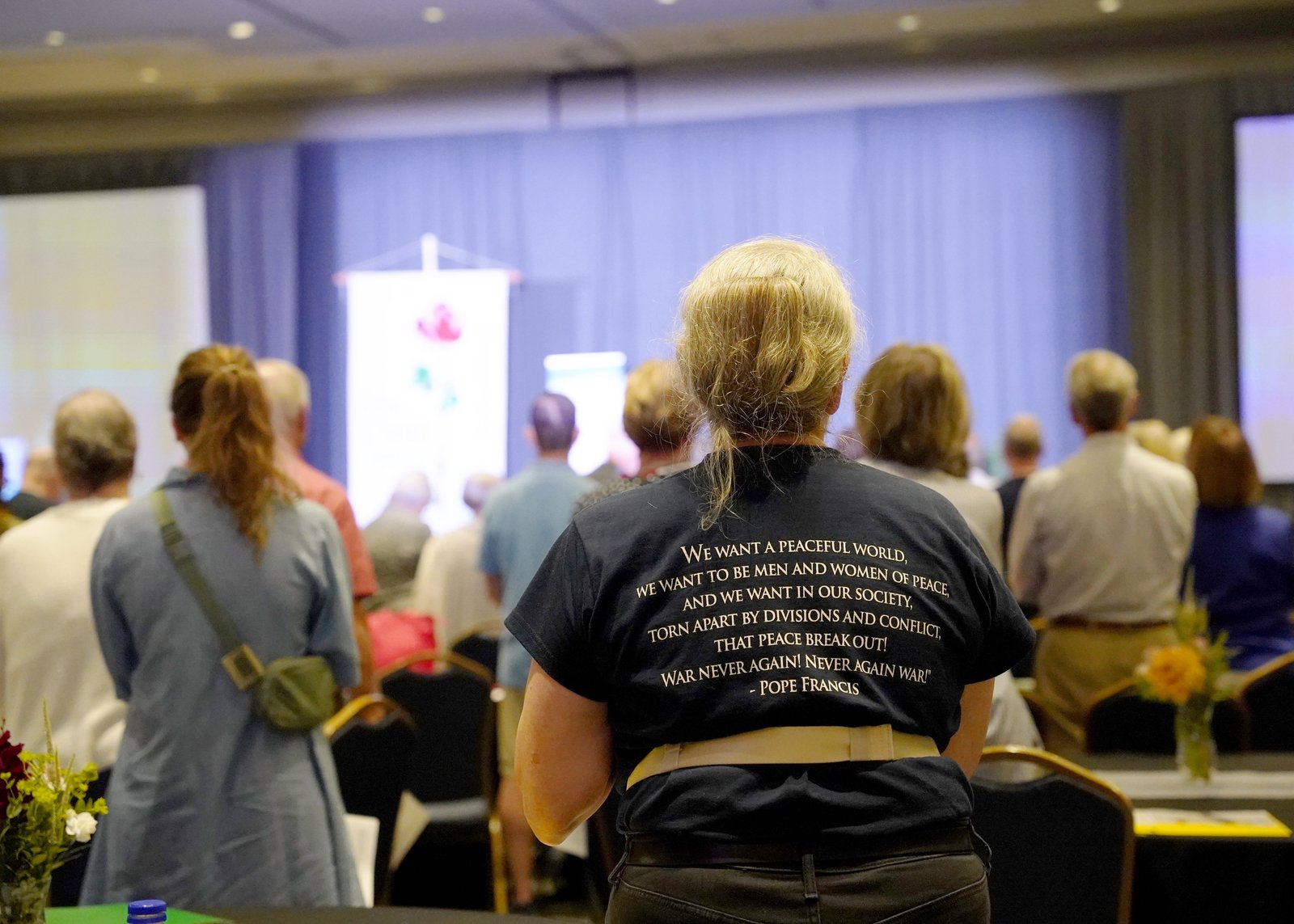
“Notice he did not say, ‘mine;’ I hear young people say today, ‘I am spiritual, not religious,’ and even though I don't want to be judgmental — it is not my role — I usually find only the second half of that saying to be accurate,” Archbishop Weisenburger explained. “You and I were created in the image of God, and that doesn’t mean His face looks like (ours), but it means He is a community of persons, and having been created in God’s image, you and I are only fully alive to one another and our God when we, too, are bonded in community.
“In fact, when we look at the tragedies and the chaos of the world today, surely our loss of the sense of community or even the desire for it is at the heart of so much of our desensitization to the chaos of the world,” Archbishop Weisenburger added.
Reaching further into the prayer to the line, “Thy kingdom come on earth as it is in heaven,” Archbishop Weisenburger explained that salvation is not all about suffering in this world to achieve the next.
“We have Catholics who feel that salvation is all about suffering through this world on my knees, and we should spend some time on our knees, and we also need to embrace suffering sometimes, but it is not just to suffer here to get there,” Archbishop Weisenburger said. “Real Christianity digs into this world so it is redeemed. We are a part of this ongoing act of redemption. I want to be with Him someday in the fullness of life and the fullness of time, but I really do want it to start here, make His will be done here as it is in heaven. Again, what we do daily we do dully, unless we do it deeply. May these words that come to us from the mouth of Jesus come often from our lips, deeply embedded in our hearts, and always prayed deeply.”
Copy Permalink
Social justice


